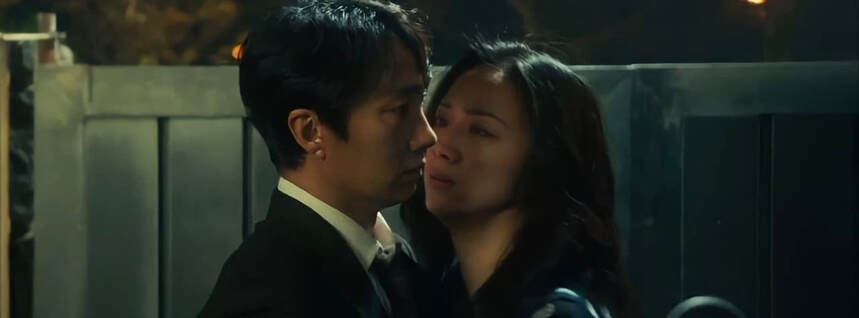|
The type of film that is going to draw ire from a specific type of filmgoer who grounds cinema and storytelling in convention and abstract notions of believability but what Park Chan-Wook has crafted with Decision to Leave is a deliriously pulpy noir that finds great utility out of the femme fatale archetype to deliver a wonderfully irreverent tale of unbridled desire and the doomed fate of those who succumb to it. Decision to Leave isn't needlessly convoluted, it is designed that way. An affront to asceticism in both formal arrangement and thematic resolve, Park Chan-Wook's aims to disrupt spatial reality and narrative clarity, bringing an acute directorial vision to this story. Exhibiting the intoxicating and disorientating effects desire can place on our cognitive processes of logic and reason, Park Chan-Wook's formal designs are rooted in disrupting physical space and temporal order, intertwining material settings with emotional impulses in a way that wonderfully builds an atmosphere in which cognitive control is subjugated by emotion. Does it completely work on a narrative level? Well, that depends on how willing you are to embrace this Hitchcockian tale of increasingly absurdest decision-making by the two central protagonists. It's a wonderful fantasy but also a rejection of orthodoxal ideas of what actions and decisions are "reasonable" "normal", or "pragmatic", Through its impressive formal style which aims to create unease and disorientation, Decision To Leave embraces the notion that primal impulses such as desire untethered from ethical constructions can disrupt logic or reason. In this scenario, nothing feels unrealistic or unbelievable, and these two characters resting at the fulcrum of this story are merely pawns for this irreverent, twisted tale of doom and desire.
0 Comments
Leave a Reply. |
AuthorLove of all things cinema brought me here. Archives
June 2023
|

 RSS Feed
RSS Feed
